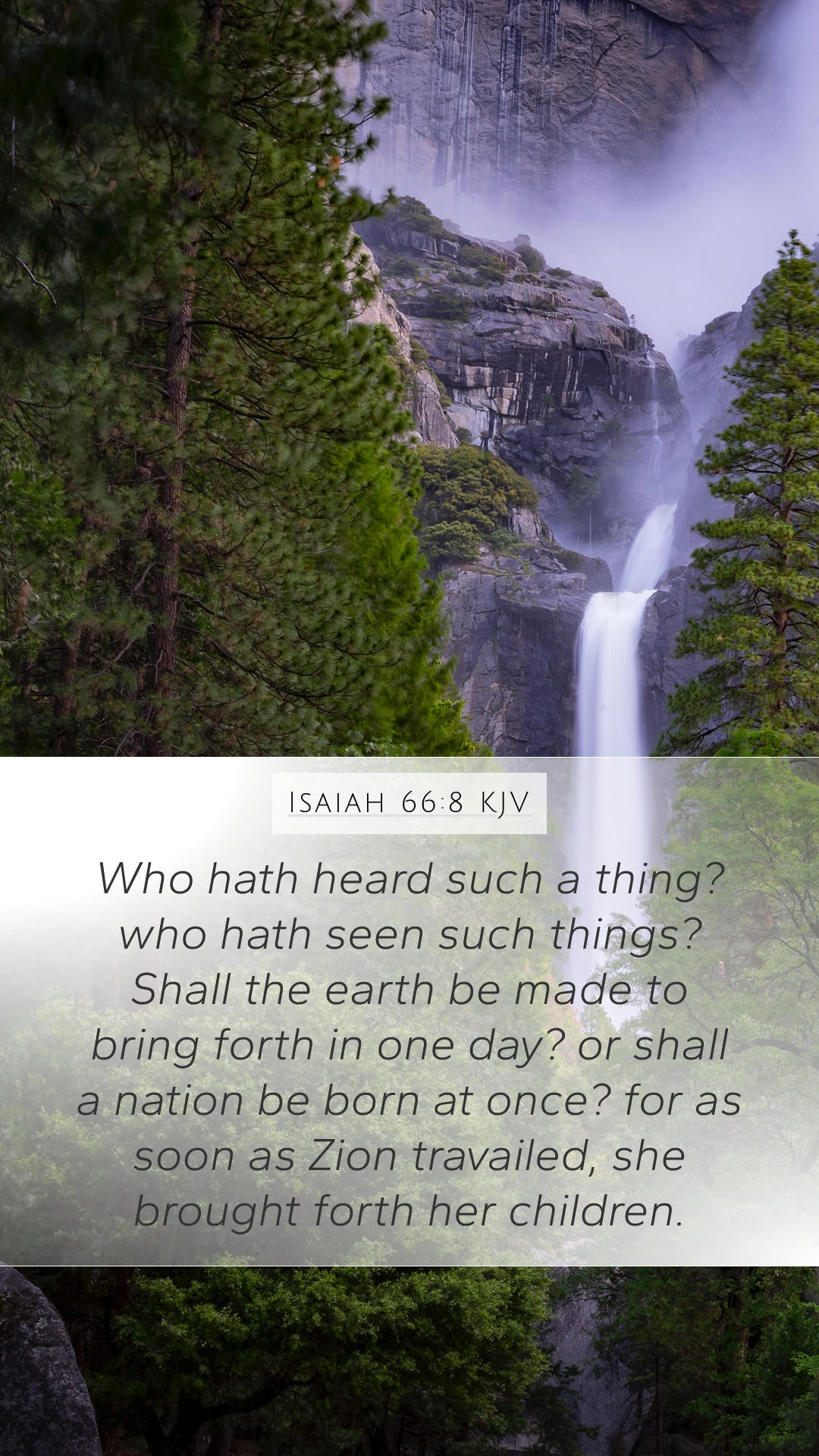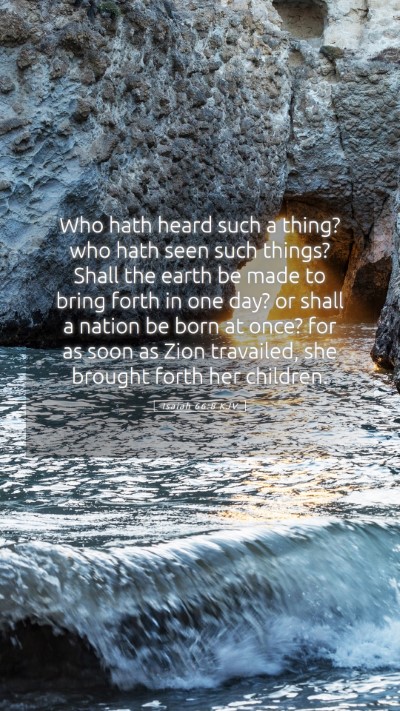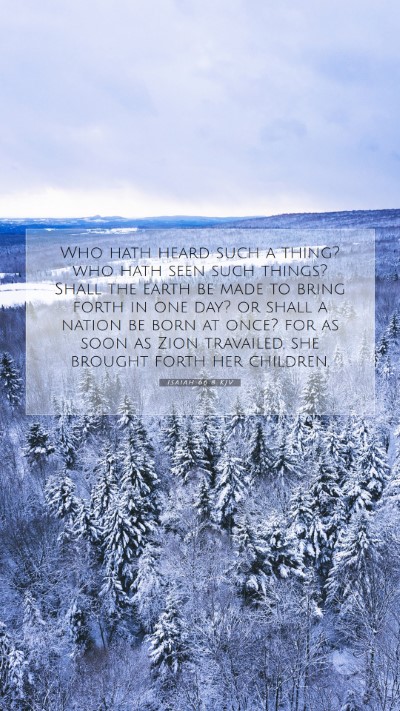Understanding Isaiah 66:8
Verse: Isaiah 66:8 states, "Who hath heard such a thing? who hath seen such things? Shall the earth be made to bring forth in one day? or shall a nation be born at once? for as soon as Zion travailed, she brought forth her children."
Overview of Isaiah 66:8
This verse is part of a prophetic message in the book of Isaiah that addresses the restoration and future glory of Israel. It speaks to the miraculous nature of Zion's restoration and new birth as a nation, emphasizing the power and sovereignty of God in fulfilling His promises.
Bible Verse Meanings from Commentaries
-
Matthew Henry:
Henry emphasizes that this passage illustrates the extraordinary nature of God’s plan for Israel. Just as a mother experiences labor pains, so too does Zion undergo suffering, but from this, great blessings emerge.
-
Albert Barnes:
Barnes focuses on the rhetorical questions posed, which highlight the unprecedented nature of Israel's restoration. He interprets these questions as affirmations of God’s ability to bring forth His people in an instant, showcasing both the miraculous and the historical significance of their revival.
-
Adam Clarke:
Clarke reflects on the imagery of travail and birth, underscoring the idea that significant spiritual renewal often comes through intense struggle. He suggests that the mention of a nation being born conveys hope and encouragement amidst despair.
Bible Verse Interpretations
The interpretation of Isaiah 66:8 reveals the profound hope embedded within the text. It uses the metaphor of childbirth to express the sudden and miraculous nature of Israel's restoration, reassuring the faithful of God's unwavering commitment to His covenant people.
Bible Verse Explanations
This verse explains the nature of God's redemptive work—transformative and instantaneous, like a nation being born. It reflects God's desire to deliver His people from oppression and ensure their flourishing as a testament to His glory and faithfulness. It reassures believers that God's promises will come to fruition, often in ways that surpass human understanding.
Scriptural Context
Isaiah 66:8 sits within a larger narrative about the restoration of Zion and is a culmination of themes presented throughout Isaiah. The chapter speaks of God's final judgment, comfort, and restoration, culminating in a vision of hope for a renewed Jerusalem.
Cross References
- Isaiah 54:1: "Sing, O barren, thou that didst not bear; break forth into singing, and cry aloud, thou that didst not travail with child..." - This verse also speaks of God's restoration and the joy of birth.
- John 3:3-5: "Jesus answered and said unto him, Except a man be born again, he cannot see the kingdom of God." - Highlights the theme of new birth in a spiritual context.
- Galatians 4:26: "But Jerusalem which is above is free, which is the mother of us all." - Connects with the idea of new beginnings and the freedom found in Christ.
Bible Study Insights
For Bible study groups exploring Isaiah 66:8, consider discussing the imagery of travail and birth, the significance of sudden restoration, and how this message can be applied to one's spiritual life. The verse encourages believers to remain hopeful even in adversity, understanding that God is at work in ways that may not be immediately visible.
Application of Isaiah 66:8 to Daily Life
Understanding Isaiah 66:8 can encourage individuals facing challenges to see their struggles as part of a greater plan where new life and blessings can emerge. It prompts believers to trust in God's timing and power and reminds them that transformation may come through endurance and faith.


